Charvaka originally known as Lokāyata is the ancient school of Indian materialism. Charvaka holds direct perception, empiricism, and conditional inference as proper sources of knowledge, embraces philosophical skepticism and rejects Vedas, Vedic ritualism, and supernaturalism.
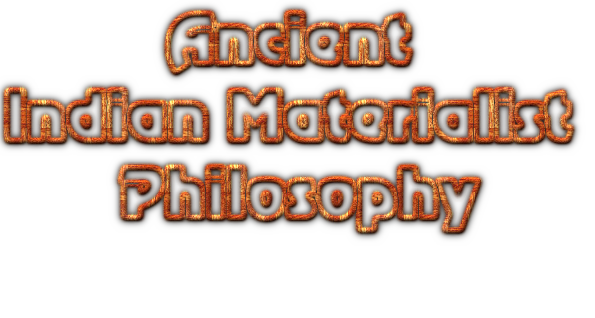
Ajita Kesakambali is credited as the forerunner of the Charvakas while Brihaspati is usually referred to as the founder of Charvaka or Lokāyata philosophy.
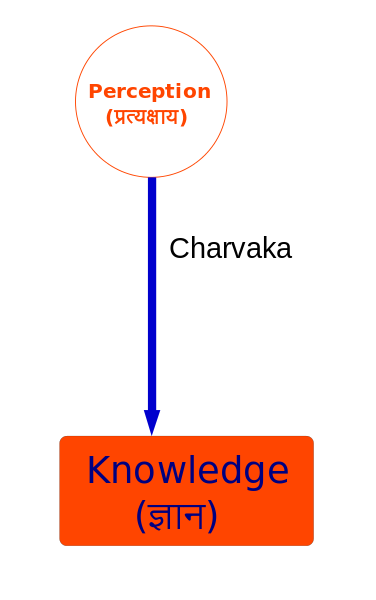
One of the widely studied principles of Charvaka philosophy was its rejection of inference as a means to establish valid, universal knowledge, and metaphysical truths.In other words, the Charvaka epistemology states that whenever one infers a truth from a set of observations or truths, one must acknowledge doubt; inferred knowledge is conditional.

Charvaka is categorized as a heterodox school of Indian philosophy.It is considered an example of atheistic schools in the Hindu tradition
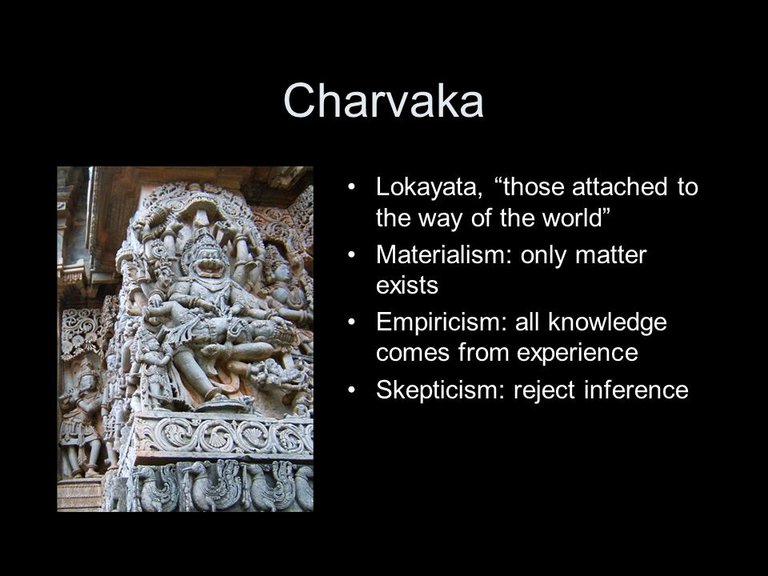
Charvaka epistemology represents minimalist pramāṇas (epistemological methods) in Hindu philosophy. The other schools of Hinduism developed and accepted multiple valid forms of epistemology.To Charvakas, Pratyakṣa (perception) was the one valid way to knowledge and other means of knowledge were either always conditional or invalid. Advaita Vedanta scholars considered six means of valid knowledge and to truths: Pratyakṣa (perception), Anumāṇa (inference), Upamāṇa (comparison and analogy), Arthāpatti (postulation), Anupalabdhi (non-perception, cognitive proof) and Śabda (word, testimony of past or present reliable experts).While Charvaka school accepted just one, the valid means of epistemology in other schools of Hinduism ranged between 2 and 6
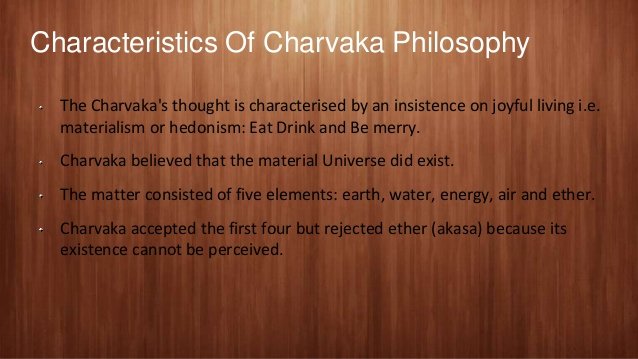
Charvaka school of Hinduism did not believe in karma, rebirth or an afterlife. To them, all attributes that represented a person, such as thinness, fatness etc., resided in the body. The Sarvasiddhanta Samgraha states the Charvaka position as follows,
There is no other world other than this;
There is no heaven and no hell;
The realm of Shiva and like regions,
are invented by stupid imposters.
— Sarvasiddhanta Samgraha verse 8[52]
(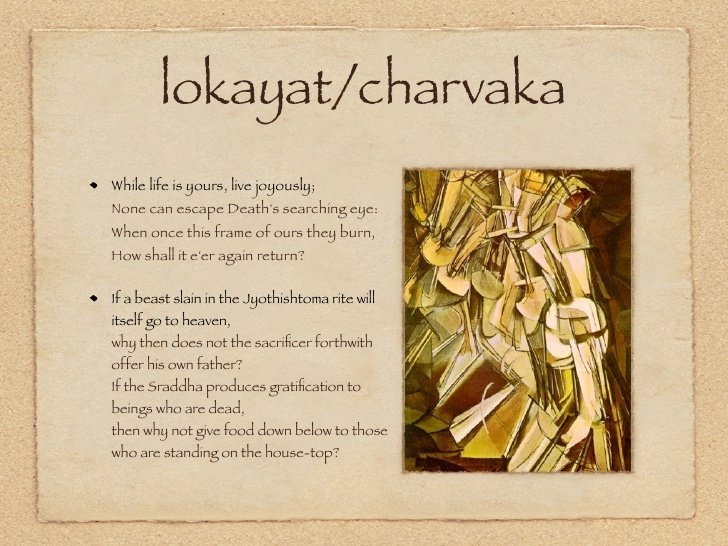 )
)
Charvaka believed that there was nothing wrong with sensual pleasure. Since it is impossible to have pleasure without pain, Charvaka thought that wisdom lay in enjoying pleasure and avoiding pain as far as possible. Unlike many of the Indian philosophies of the time, Charvaka did not believe in austerities or rejecting pleasure out of fear of pain and held such reasoning to be foolish.
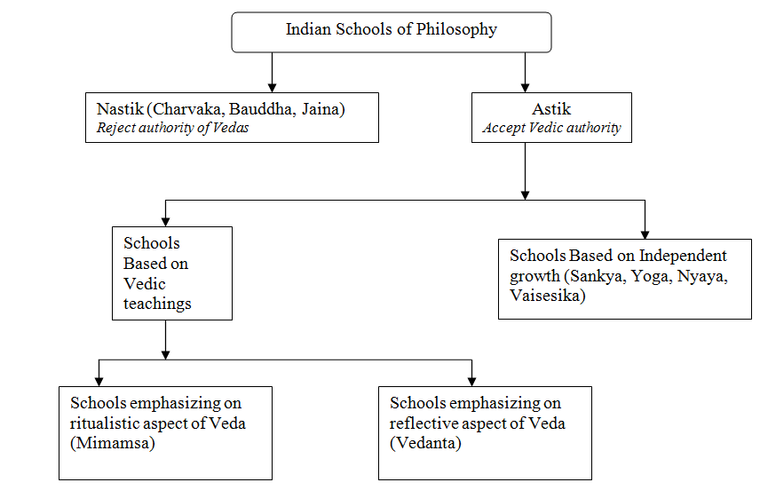
The Sarvasiddhanta Samgraha states the Charvaka position on pleasure and hedonism as follows,
The enjoyment of heaven lies in eating delicious food, keeping company of young women, using fine clothes, perfumes, garlands, sandal paste... while moksha is death which is cessation of life-breath... the wise therefore ought not to take pains on account of moksha.

A fool wears himself out by penances and fasts. Chastity and other such ordinances are laid down by clever weaklings.
— Sarvasiddhanta Samgraha, Verses 9-12[53]
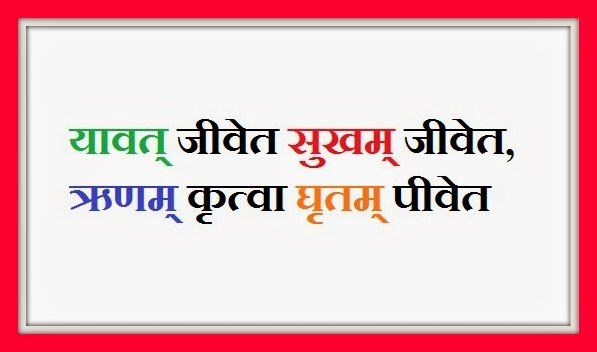
Buddhists, Jains, Advaita Vedantins and Nyāya philosophers considered the Charvakas as one of their opponents and tried to refute their views. These refutations are indirect sources of Charvaka philosophy. The arguments and reasoning approach Charvakas deployed were significant that they continued to be referred to, even after all the authentic Charvaka/Lokāyata texts had been lost. However, the representation of the Charvaka thought in these works is not always firmly grounded in first-hand knowledge of Charvaka texts and should be viewed critically.

Interesting write up!
thank u so much fr d response....:)
thank dear!
click here!This post received a 2.3% upvote from @randowhale thanks to @alokchitri! For more information,
thank u...
thanks for your appreciation...hope this would draw some kind attention
Such an informative post...great!
thanks
Great write up! Resteemed! (I am out of voting power!)
thank you
Excellent
thank you
Very informative. References would help readers to dig more in the topic. Thanks!